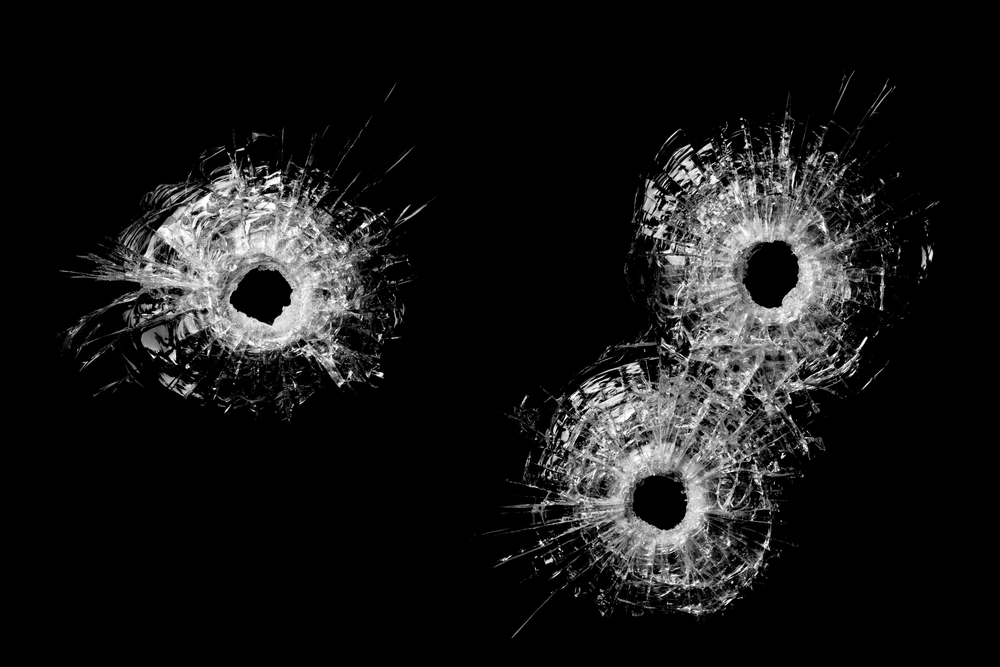Why Mass Killers Aren't Necessarily Psychopaths

The term "psychopath" is often a misunderstood one; although people frequently refer to alleged mass killers like Colorado shooter James Holmes or the Tucson, Ariz., shooter Jared Loughner as psychopaths, that doesn't mean these men fit the description of this mental health disorder.
In the last week, a psychiatric evaluation report was released stating that after months of receiving treatment for schizophrenia, 23-year-old Loughner seemed to understand that he was agreeing to a guilty plea for the 2011 shooting rampage that killed six people and wounded 13 others, including then-Congresswoman Gabrielle Giffords.
Meanwhile, lawyers for Holmes announced they believe the 24-year-old suffers from mental illness, though they haven't yet determined the exact nature of his illness. Weeks before the shooting, Holmes' psychiatrist, Dr. Lynne Fenton, University of Colorado professor who specializes in schizophrenia, had alerted university police about Holmes' behavior.
But such evidence does not suggest that these men are psychopaths. Psychopaths are people who generally lack empathy, don't feel remorse or guilt for their actions and may use violence or intimidation to get what they want. They can be irresponsible, egocentric, charming and manipulative.
In contrast, a person who suffers from the mental illness of schizophrenia usually lives in their own reality, often experiencing hallucinations and delusions.
"People who commit mass murders are obviously not doing well," said Louis Schlesinger, a forensic psychologist at John Jay College of Criminal Justice in New York. "Just looking at Holmes' demeanor or behavior clearly suggests that, but that doesn't make him a psychopath."
And although psychopaths can be violent, that doesn't mean they commonly kill.
Sign up for the Live Science daily newsletter now
Get the world’s most fascinating discoveries delivered straight to your inbox.
"Most psychopaths don't kill anybody," Schlesinger said, "and not everybody that kills is a psychopath."
According to Dr. Michael Welner, a forensic psychiatrist at the NYU School of Medicine, while psychopaths do commit homicides, their motives tend to be specific – they are usually driven by money, sex or a desire to escape from the scene of another crime.
But for mass killers, a motive can be that they see themselves as failures, Welner said.
Mass killers can be men who "are painfully aware of themselves as social and sexual rejects in a society that values social desirability," Welner said. "And in a society that values achievement, they are aware of how they have fallen short, and in ways that will not reverse."
What drives someone to commit mass murder
There are different types of mass killings, all driven by a different motivation, said Dr. Douglas Mossman, a forensic psychiatrist at the University of Cincinnati College of Medicine.
Killers might be motivated by grief, anger, resentment, or feeling used or mistreated, he said.
"There have been school massacres, hate crimes, workplace killings, even entire family killings," Mossman said. "In most cases, these followed fairly recent events that happened to individuals who responded in ways that led them to do what they did."
Mossman pointed to the case of Virginia Tech shooter Seung-Hui Cho, who had a history of anxiety and depressive disorders. Cho was involuntarily hospitalized due to his disturbing behavior about 16 months before the 2007 shooting, in which he killed 32 people and then himself.
But that doesn't mean that all mass killers suffer from mental illness, and "mass killers who do have serious mental illnesses only represent a small fraction of people with mental illnesses," Mossman said.
That small fraction generally includes people who suffer from severe mood disorders such as depression, psychoses like a particular type of schizophrenia, or some form of delusional disorder.
"Mental illness may create motives," he said, "such as a delusional belief that one is being persecuted by the government, or having one's thoughts monitored via one's metallic dental fillings."
Detecting someone with violent tendencies
Mass killings are generally committed by men, as are most violent crimes. According to the Bureau of Justice Statistics, men are nine times more likely to commit murder than women. And very few women have committed mass murders.
"Men have higher testosterone levels than women, making them more aggressive," Mossman said. "So there's something operating there at a basic biological level."
But experts also believe that starting in childhood, men are taught to be stoic and not show emotion. They are also encouraged to take risks, be aggressive and not show any sign of weakness or vulnerability.
"Boys get lots of social messages about responding violently to wrongs," Mossman said. "Clint Eastwood and Sylvester Stallone got wealthy conveying that message."
People who are severely troubled, and even paranoid, can lead relatively normal lives, making it difficult for anyone, even mental health professionals, to determine whether someone is actually a threat.
"People exhibit different kinds of behavior or thinking patterns that could possibly lead to a violent act," Mossman said. "But the problem is that there are hundreds of individuals who display these same patterns, who don't go on to act violent."
Pass it on: Mass killers have different motivations for committing murder, but they aren't necessarily psychopaths.
This story was provided by MyHealthNewsDaily, a sister site to LiveScience. Follow MyHealthNewsDaily on Twitter @MyHealth_MHND. Find us on Facebook and Google+.










